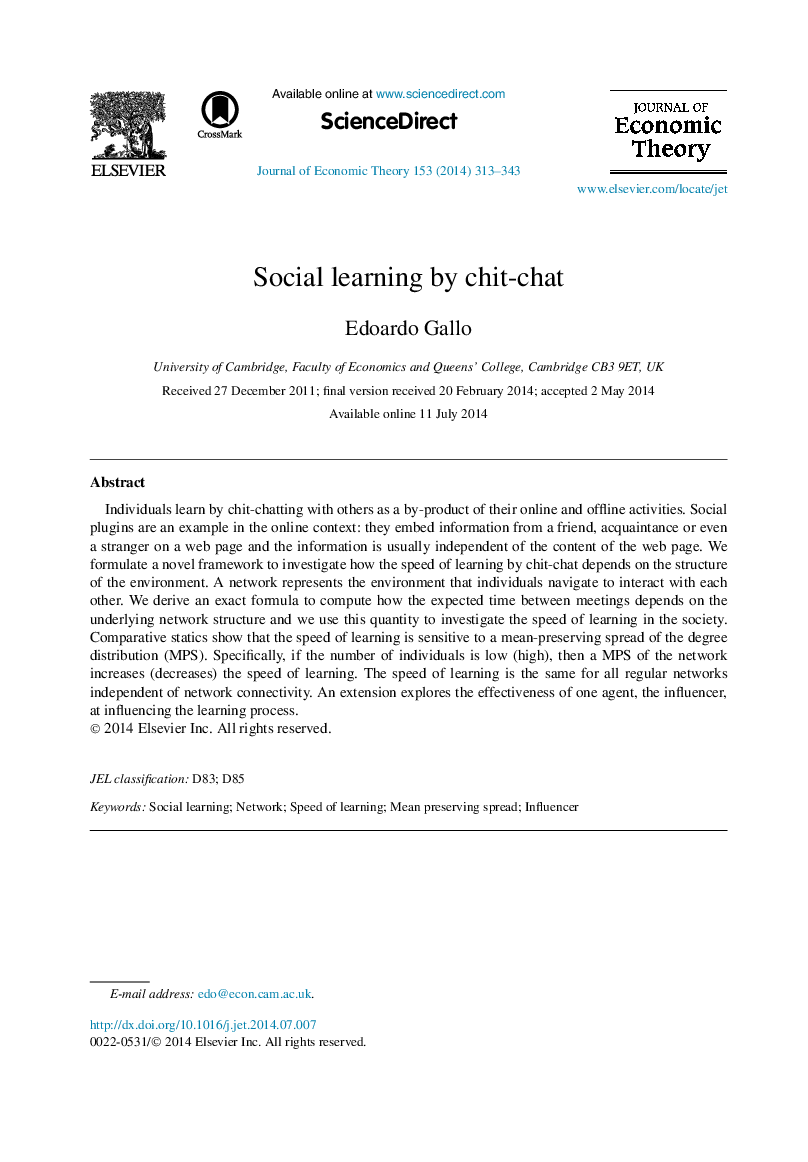| کد مقاله | کد نشریه | سال انتشار | مقاله انگلیسی | نسخه تمام متن |
|---|---|---|---|---|
| 956643 | 1478750 | 2014 | 31 صفحه PDF | دانلود رایگان |
Individuals learn by chit-chatting with others as a by-product of their online and offline activities. Social plugins are an example in the online context: they embed information from a friend, acquaintance or even a stranger on a web page and the information is usually independent of the content of the web page. We formulate a novel framework to investigate how the speed of learning by chit-chat depends on the structure of the environment. A network represents the environment that individuals navigate to interact with each other. We derive an exact formula to compute how the expected time between meetings depends on the underlying network structure and we use this quantity to investigate the speed of learning in the society. Comparative statics show that the speed of learning is sensitive to a mean-preserving spread of the degree distribution (MPS). Specifically, if the number of individuals is low (high), then a MPS of the network increases (decreases) the speed of learning. The speed of learning is the same for all regular networks independent of network connectivity. An extension explores the effectiveness of one agent, the influencer, at influencing the learning process.
Journal: Journal of Economic Theory - Volume 153, September 2014, Pages 313–343
